This book is a collection of letters that came in response to some of the questions posed to Ibn Arabi by some of the sheikhs, scholars, and contemporaries. It also contains a collection of books that address some important Sufi ideas, such as the issue of annihilation, oneness, manifestation, beauty, the meaning of eternity, the seven heavens, the spirituality of each heaven and its specialities, the spirituality of the spheres, and other ideas that open new horizons for our understanding of religion and Sufism.
Ibn Arabi’s Letters
د.ا7.50د.ا8.00
A collection of letters written by Muhyiddin Ibn Arabi, addressing profound spiritual and philosophical topics that reflect a distinctive Sufi thought.
Available on backorder
| Categories: | Literature, Islamic literature, Messages, Philosophy |
|---|---|
| Tags: | Islam, Islamic Studies, Spirituality, thought |
| Author | |
|---|---|
| Year | |
| Publisher | Dar al-Kutub al-Ilmiyyah |
You may also like…
-
My Arch Enemy
د.ا7.00The novel is an exciting story of letters that reveals the development of its heroine’s relationship with a mysterious person through the exchange of correspondence, within a framework of romance and drama.
د.ا8.00 -
Letters from the Companions
د.ا10.00A book that collects imaginative literary letters inspired by the biographies of the Companions, conveying meanings of wisdom, faith, and humanity.
-
Messages from the Prophet ﷺ
د.ا13.00This book presents literary and humane reflections inspired by the Prophet’s biography and stances, in a contemporary style that touches the heart and mind.
-
Messages from the Qur’an
د.ا9.00This book contemplates the meanings of the verses of the Qur’an and presents spiritual messages and life lessons in the distinctive style of Adham Sharqawi.
Related products
-
Palestinian resistance literature under occupation
د.ا3.55Ghassan Kanafani is a Palestinian novelist, storyteller, and journalist, and is considered one of the most famous Arab writers and journalists in the twentieth century. His literary works, including novels and short stories, were deeply rooted in Arab and Palestinian culture
د.ا4.97 -
The other thing
د.ا2.13Ghassan Kanafani is a Palestinian novelist, storyteller, and journalist, and is considered one of the most famous Arab writers and journalists in the twentieth century. His literary works, including novels and short stories, were deeply rooted in Arab and Palestinian culture
د.ا3.55 -
The Forty Rules of Love
د.ا10.65is a novel written by the Turkish author Elif Shafak,[1][2][3] Her interest in writing this book was influenced by the degree she received in Gender and Women’s Studies.[4] The book was published in March 2009.[5] It is about the Persian mystic poet Maulana Jalal-Ud-Din, known as Rumi and his companion Shams Tabrizi.[6][7] This book explains how Shams transformed a scholar into a Sufi (mystic) through love.[8] More than 750,000 copies of this book were sold in Turkey and France
د.ا12.78 -
Prisoner of Heaven
د.ا7.10After the shadow of the wind and the angel game, I ended my strange meeting with Carlos Zafon in the third part of the Tomb of Forgotten Books series in this piece that I read while trying to understand what was going on in his head, which wanted the prisoner of heaven to tell us the dark nights of Barcelona from the window of its prisons, that prison that embraced Martin for a long time and through which he excelled in writing The Game of the Angel, which was the hero of that novel David Martin and Isabella, and we got to know their end, which was not confirmed by the lines. The writer also explains that what we can consider a coincidence with us may be wisely studied and what we interact with with all honesty may be fake and obsolete as the first boot, the past is just images stuck in our heads and just a glance of it returns to expose itself, and opens new cracks in our hearts, pushing you to search and explore what the truth is and to what extent it can comfort you or in any proportion that may make you a wreckage between the legs, yet the search for it is The way of salvation,
د.ا8.52 -
For Bread Alone
د.ا4.97For Bread Alone , al-Khubz al-Hafi) is a controversial autobiographical work by Mohammed Choukri. It was written in Arabic in 1972 and translated into English by Paul Bowles in 1973.[1] In 1980, it was published in French as Le Pain Nu in a translation by Tahar Ben Jelloun. The novel has been translated into 39 foreign languages[2] and adapted into a French graphic novel by Abdelaziz Mouride [fr].[3]
د.ا7.10 -
Lover
د.ا2.13Ghassan Kanafani is a Palestinian novelist, storyteller, and journalist, and is considered one of the most famous Arab writers and journalists in the twentieth century. His literary works, including novels and short stories, were deeply rooted in Arab and Palestinian culture
د.ا3.55 -
My journey from doubt to faith
د.ا2.13I refused to worship God because I was immersed in worshipping myself and admired the flash of light that began to flash in my mind with the opening of consciousness and the beginning of the awakening from the cradle of childhood.
This psychological state was behind the controversial scene that recurs every day. I also missed the origins of logic and I am dealing with logic and I did not realize that I am contradicting myself as I recognize the Creator and then say who created the Creator and make him a creature at the time when I call him a creator, which is sophistry itself.
Moreover, to say a first cause of existence requires that this cause must exist in itself and not dependent or need others to exist. If a cause needs a cause, this makes it one of the causal links and does not make it a first cause.د.ا3.55 -
Revolution of 36-39 in Palestine
د.ا2.13Until his early death, Ghassan Kanafani published eighteen books, and wrote hundreds of articles and studies on culture, politics, and the struggle of the Palestinian people. Following his assassination, all of his books were republished in Arabic, in several editions
د.ا3.55


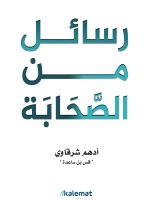
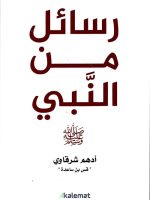
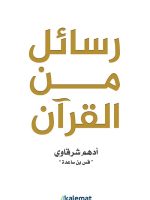
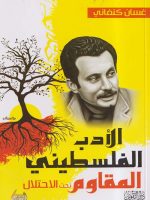
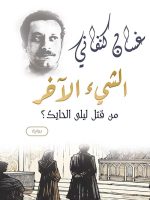
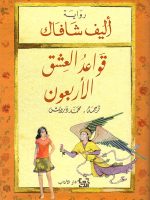
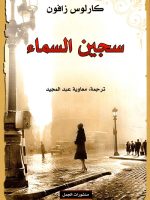
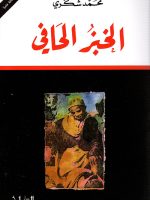
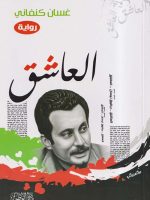
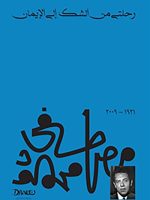
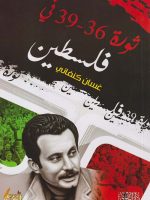
Be the first to review “Ibn Arabi’s Letters”